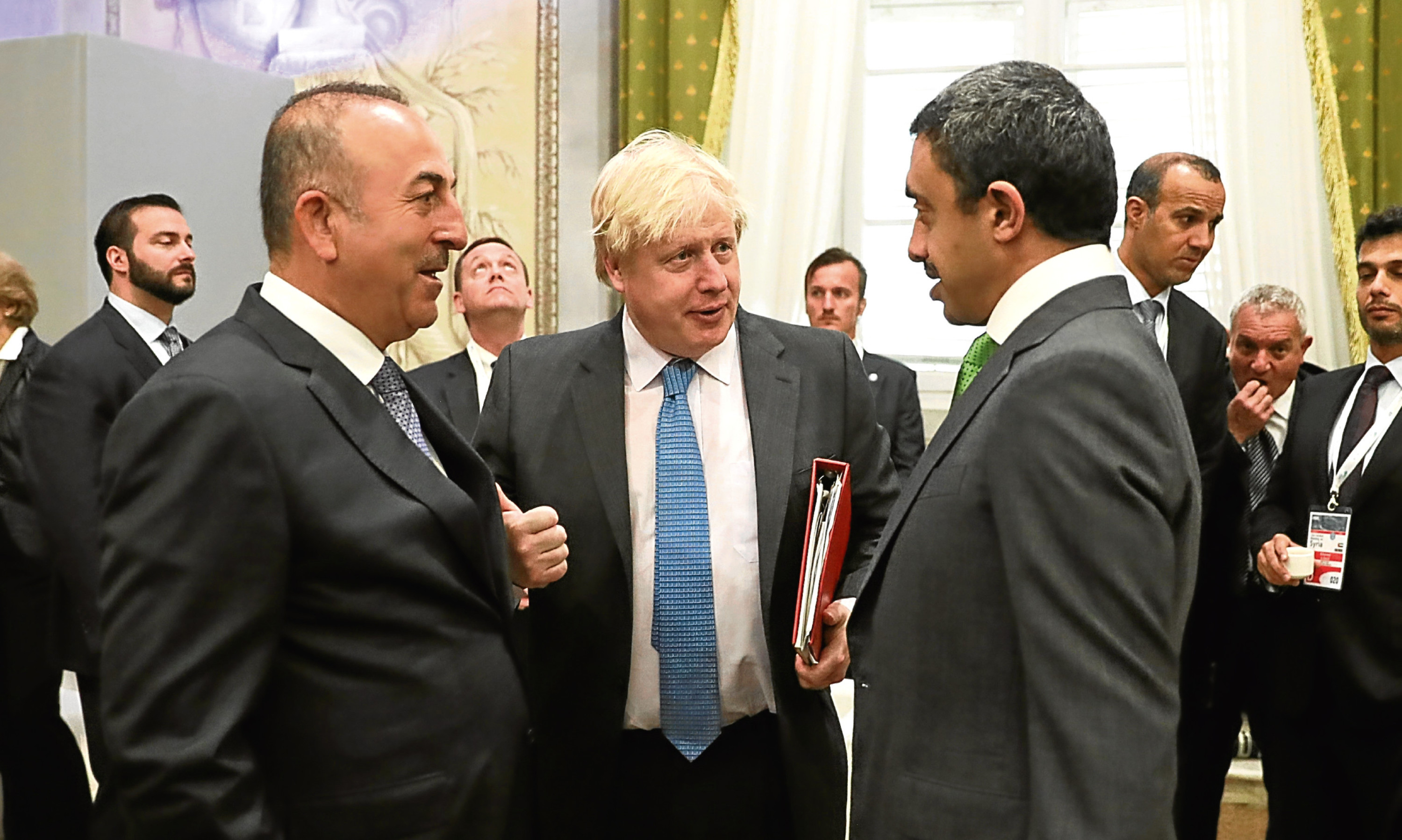Dundee likes a maverick – whether its Churchill in the early part of the 20th Century, or returning a lone urban SNP MP in its last decade.
The city should warm to Boris Johnson, a self-consciously non-politician who has managed to stay in public office no matter his faults.
Johnson seems to have modelled himself on Churchill’s example, even writing a gushing biography of the man.
The critical consensus on The Churchill Factor: How One Man Made History is that it eulogises the wartime Prime Minister to the point of hero worship.
It invites the obvious connection – that Johnson sees himself as an outsider who, in time of crisis, has the resources for heroic leadership.
As Johnson recovers from the humiliating blow of failing to gain support from G7 leaders for tougher sanctions on Russia in light of the chemical attack atrocity of last week, it’s worth considering the quality of the man.
Man in charge
After all, should the USA and Russia come to blows over Syria or the USA and North Korea end up at war – two situations which appear quite possible – it will be Johnson who is our Foreign Secretary, our man who will determine Britain’s role in either conflict.
Churchill won the Dundee seat as a Liberal – he was elected by folk who thought he’d protect the workers and by businesses who favoured free trade.
Made a minister in the Liberal government, he then enacted anti-worker measures and came out firmly against Irish nationalism, which didn’t endear him to the immigrant workforce in the city.
Making only a token effort to visit the constituency didn’t help and he was voted out in 1922. It’s a fool who takes Dundee for granted.
Over the span of his career, though, Churchill was an intelligent man who took brave policy decisions.
Not only did he switch parties, he opposed the rise of fascism in Europe much sooner (early 1930s) than many mainstream British politicians.
The evidence suggest he was an unbearable elitist and his passion for a nascent globalism at the expense of workers was arrogant. But more importantly, he led the UK to victory over Hitler.
For Johnson, more than 20 years in public life has produced no brave decisions and very little content.
Proving that Eton and Oxford will get you anywhere, on graduation he went straight into journalism and 10 years later into parliament.
“B army Brussels”
As a journalist he largely invented the theme of “barmy Brussels”, writing about ludicrous EU policy decisions, some of which were true.
In 2008 he became Mayor of London, a job he held for eight years in which no memorable policy was pushed through.
When that ended he returned to parliament and, no longer clear what he thought about the EU, plumped for the Leave campaign at the last moment.
Whether he believes in it or not is open to debate but he clearly doesn’t much believe in himself – on the resignation of his campaign mentor Michael Gove, he pulled out of the Tory leadership race.
In retrospect, this was an astonishing admission of personal doubt.
What “great leader” would withdraw on the basis on one colleague quitting?
Thus Britain is left with a Foreign Secretary who, it could be argued, prevaricates on major issues and lacks the vital ingredients of leadership and courage.
Whether humiliated or not on the matter of sanctions against Russia, Johnson is simply not capable of holding the trust of the British people on matters of war.
It’s not just that he is no Churchill, it’s farcical to even consider the notion.
Charlatan
To me he seems like a charlatan, a fraud and a liability – the only politician in my lifetime about which that can be said without fear of a lawyer’s letter.
In the words of my former colleague and outstanding broadcaster, Eddie Mair on the BBC, he’s a “nasty piece of work”.
If you haven’t seen Eddie’s interview with Johnson, I recommend you search for it immediately.
Labour is on solid ground when the shadow chancellor John McDonnell describes Johnson as a liability for Britain who “undermines our (UK) credibility”.
McDonnell said the failure of the G7 to even mention Johnson’s sanctions wheeze in its communique, coupled to his cancelling of a trip to Moscow, amounted to a man who lacked judgement.
“You have got to have confidence in the person you send out to deal with the situation” said McDonnell to the BBC.
And that is the point.
This isn’t a story about a cock-up in the glare of 24-hour media, not one of those tales where one mistake is magnified so a politician can be sacked.
This is just another detail in a saga of failure.
He appears like a man in search of history – a character who wants glory.
Johnson should go not because his opponents want that but his career to date demands it.
The simple test is this – if he told us we were going to war, would you follow?
